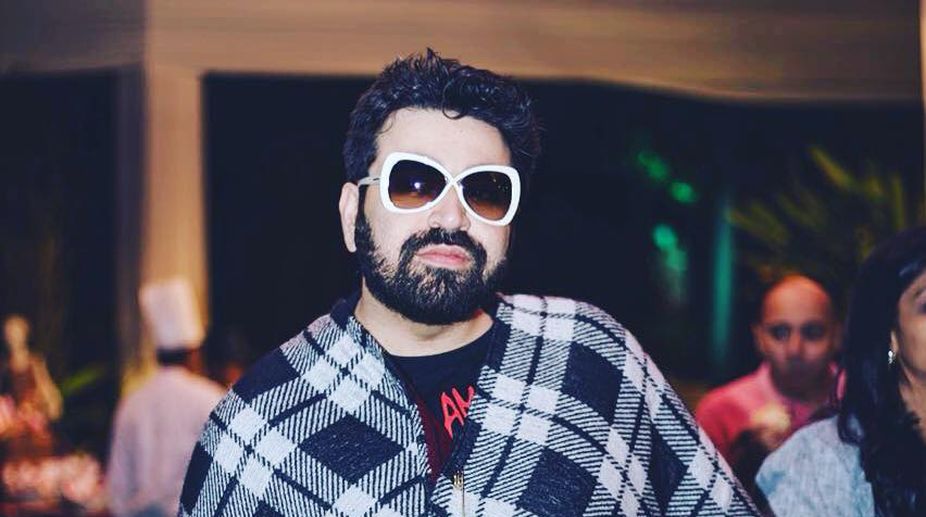Courts as scavengers
The bureaucracy must perform its duties diligently to save courts from the role thrust on them by the teachers recruitment scam.
Suri, who has filed a fresh petition in the Supreme Court of India, challenging article 377, says in an interview with Kunal Roy, the law is a violation of the fundamental right of the members of the LGTBQ community.

Keshav Suri (Photo: Facebook)
Hotelier Keshav Suri, Executive Director of The Lalit Group of Hotels, speaks about being gay, hardships faced by members of the LGBTQ community and expectations from the top court on article 377.
Suri, who has filed a fresh petition in the Supreme Court of India, challenging article 377, says in an interview with Kunal Roy, the law is a violation of the fundamental right of the members of the LGTBQ community. Excerpts:
Advertisement
At what point did you decide to file the writ petition in the Supreme Court?
Advertisement
I filed it because the timing was right. With the Privacy Judgment being passed in 2017, theShakti Vahan judgement and the Hadiya Judgement in March-April that validated the Right of Choice, the rigours of Section 377 IPC seemed to be fading. Therefore, it seemed the right time for me to file the petition.
Can you throw light on the problems faced by the members of the LGTBQ community?
Section 377 nurtures discrimination and harassment, which starts early for the LGBTQ community ~ be it in school or colleges (as they often have to drop out due to the omnipresent homophobia).
Even at home parents often disown their children when they find out. Young boys and girls go through “corrective rape” by their own parents. Lack of education, mental trauma and lack of medical health care for the community is just the tip of the iceberg.
In some of your articles,you have written about the economic aspects of homophobia. Could you please elaborate? The discriminations brought about by Section 377 does not only threaten the dignity of LGBTQ community but also hurts the country economically.
As per World Bank estimates, discrimination against LGBTQ community could cost the country billions of dollars ~ a 2014 interim report estimated the Indian economy lost the equivalent of 0.1-1.7% of its GDP. It’s time to stop ignoring this.
At the same time, this community is known to have high disposable income. Tourism is taking a big hit. The US is estimated to earn approx 917 billion dollars every year through the Pink Money. In 1998, Pink Money in the UK was valued at 350 billion pounds. Even a Middle- East country like Israel launched its first tourism campaign inviting the LGBTQ community, years ago.
Why do we continue to nurture the hangover of our post-colonial guilt? A nation cannot progress when a large section of its population lives under the fear of false prosecution and discrimination. The Pink Economy is becoming powerful and it is time to get rid of archaic laws that hamper the growth of our country.
Tell us about your #Purelove campaign.
In August, last year, I asked a question to about 200 young CEOs of the country, at a forum: ‘What can we do to bring the deeply marginalised LGBTQ community into the mainstream?’ Soon after that I decided to answer my own questionandstartedthe# PureLoveCampaign in September 2017.
The shooting at Pulse in Orlando hit me. I realised we are the segment of society that has no rights. It was also my personal and professional awakening and I started to bring about a change in my own company.
With the launch of #PureLove Campaign, I took up the cause to mainstream the marginalised community and create an environment of inclusion for people belonging to the LGBTQ community in and among corporate India. PureLove encourages people from all walks of life, in particular those belonging to the LGBTQ community, to come forth and share their experiences, seek emotional support and find economic opportunities for themselves.
It is in tandem with the United Nation’s guiding principles on tackling discrimination against lesbians, gays, bi-sexual, transgender and intersex people. We have hired acid attack survivors, people who are differently-abled, about 10 transgender employees in the company. We also planned and executed a fashion walk with the transgender community. There is a lot we have been doing and will continue to do.
The Supreme Court said in January that the verdict will be put for reconsideration. What are your expectations from the top court?
Well, one lives in hope. I have full faith in the judiciary of India and I am thankful to the honorable Supreme Court to have heard my writ and the others before me, who paved the way for someone like me. My idea, while filing the petition, was to represent a collective voice to address a vital human right.
Homosexuality still remains stigmatised in a large section of the society. What should be done, according to you, to explain that such relationships are natural?
Homophobia and transphobia should be not recognised as diseases. These phobias can only be eradicated through education and proper representation of these people in everyday life. The right to dignity and living with dignity is a Fundamental Right. It is high time we understand and accept this.
My writ petition is a call for it. People should understand that Article 377 is a violation of our Fundamental Rights and start seeing us as human beings first. It is in our order of nature to be with our chosen partners and no law can dictate what is natural to us.
We must educate ourselves, friends, colleagues, citizens and children to accept and respect all. In addition, there should be sensitisation workshops in schools, so teenagers do not go through bullying or confusion, in the process of self-discovery.
Advertisement